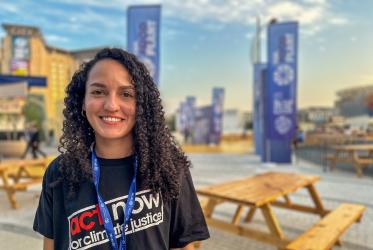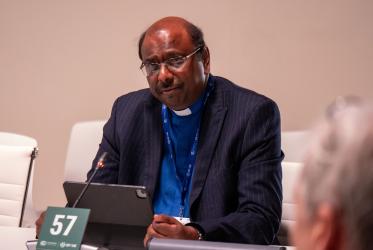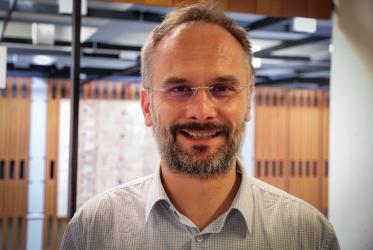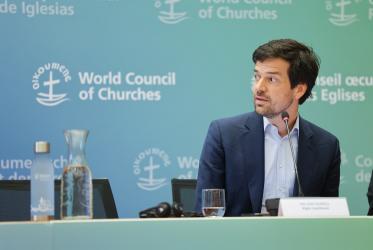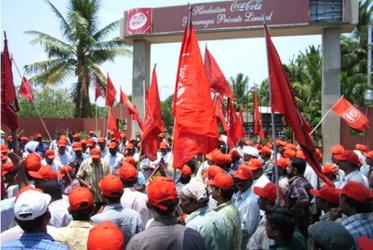Displaying 1 - 20 of 36
What can churches do to prevent modern slavery?
22 February 2024
Ellyanne Chlystun-Githae Wanjiku to COP28: “listen more to children”
13 December 2023
At COP28, WCC general secretary hopes for “less talk and more walk”
01 December 2023
ACT Alliance general secretary: “equity is not negotiable”
26 September 2023
Pandemic and pedagogy: what are the valuable lessons?
21 December 2022
Gracia Ross: “Responding to HIV is a moral obligation”
27 September 2022
Groundwater is “a political question”
27 April 2022





